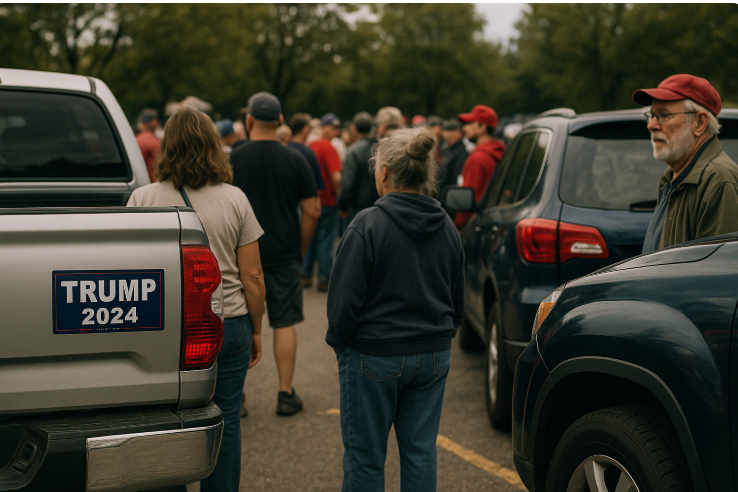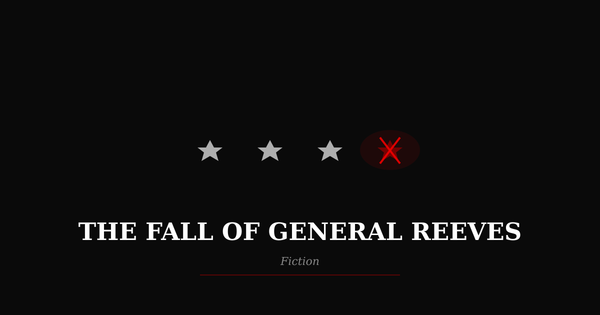SNAP

Saturday Comes Anyway
Saturday, November 1st, 2025. The day 42 million Americans lose their food stamps. Not because we're broke. Not because the funds don't exist. But because of a choice.
The US Department of Agriculture says it will not tap into its $6 billion contingency fund to cover food stamp benefits. These funds, allocated by Congress for exactly this purpose, remain untouched. The law provides these amounts "shall be placed in reserve for use only in such amounts and at such times as may become necessary to carry out program operations."
Saturday arrives anyway.
The Architecture of Hunger
The mechanics are simple. Nearly two-thirds of the funds needed for a full month of benefits are available in SNAP's contingency fund and must be used when regular funding for SNAP runs short. November needs $8 billion. The contingency holds between $5 and $6 billion.
The administration has options. They've used them before—the same authority USDA used to transfer $300 million to WIC earlier this month could bridge the gap. The legal framework exists. The precedent is established.
Twenty-five states and the District of Columbia filed suit to compel the United States Department of Agriculture to use $6 billion in contingency funds to pay November SNAP benefits. They understand what's at stake. They know what's possible.
Saturday doesn't care about lawsuits.
The Deleted Truth
The Trump administration now claims legal barriers prevent them from accessing these funds. But their own documents tell a different story. The Trump administration's own USDA lapse plan stated "These multi-year contingency funds are also available to fund participant benefits in the event that a lapse occurs."
That document has since vanished from government websites. The policy reversed. The explanation changed.
This stands in opposition to the law and prior practice, including by the Trump Administration itself. During the 2018-2019 shutdown, they found ways to maintain benefits. Now they find excuses.
The federal government is legally obligated to release these funds. Obligation, in legal terms, means requirement. Not suggestion. Not option. Requirement.
Saturday recognizes no obligations.
The Human Inventory
Nearly 42 million people—or about 1 in 8 Americans—received food stamps. Break that down: About 39% of food stamp recipients were children, while 20% were elderly and 10% were non-elderly individuals with a disability.
Sixteen million children. Eight million seniors. Four million disabled Americans.
Households receive about $350 a month, on average, in SNAP benefits. That's $87.50 weekly. $12.50 daily. The cost of a movie ticket. The price of survival.
Saturday, the math changes.
The Geography of Betrayal
Texas: More than 3.5 million low-income Texans are among the more than 40 million Americans receiving SNAP. They delivered their electoral votes to Trump. Saturday delivers them hunger.
New Mexico leads the nation: 460,000 people receive SNAP benefits. At 21% of the state's population, that's the highest participation rate in the country. One in five New Mexicans. Saturday, they all discover what their votes bought.
West Virginia admits defeat before the battle: Gov. Patrick Morrisey's office says West Virginia does not have the budget to cover the costs. They never do when it matters.
The Compound Fracture
Saturday brings multiple breaks. For some SNAP recipients it could be double whammy. Many will be subject to new work requirements tied to the benefit starting Nov. 1—the same day their benefits might end.
New requirements. No benefits. No jobs in their hollowed-out towns. The perfect trap.
Food banks are already buckling. Demand at one pantry almost doubling in a week—and that's before Saturday's tsunami hits. When 42 million people lose benefits simultaneously, the safety net doesn't stretch. It shreds.
The Political Theater
Agriculture Secretary Brooke Rollins said "It's their very friends, partners, colleagues, Democrat elected officials, that continue to vote over and over again to keep the government closed."
The shutdown is about healthcare subsidies. Democrats want them extended. Republicans want them dead. Food stamps became the hostage.
Meanwhile, the Trump administration and congressional Republicans pushed through the so-called "One Big Beautiful Bill Act," which slashed SNAP funding by an estimated $186 billion over ten years. They cut the program's future. Now they're cutting its present.
The Trump administration has taken several steps throughout the shutdown to move money around to fund priorities, like a directive to pay active-duty military members. Funding appears when they want it to appear. It vanishes when they don't.
The Economic Cascade
Each month, the federal government pays $8 billion in SNAP benefits. But the economic impact multiplies: SNAP transactions pump nearly $120 billion annually into the economy.
Saturday starts the bleeding. Rural grocery stores—already on life support—face immediate crisis. A Louisiana grocery owner put it simply: "SNAP customers are half my business. If they don't get paid, I don't get paid."
Half their business. Gone. Saturday.
The Personal Becomes Political
Shari Jablonowski, a 66-year-old widow who lives outside Pittsburgh, is bracing to lose the $291 in food aid her disabled nephew gets. "I could not afford to pay anything, gas or electric. If her nephew's food benefit disappears in November? I am very concerned I will not have heat."
$291 a month. The difference between heat and cold. Food and hunger. Survival and something else.
Saturday, she finds out what something else means.
The Thanksgiving Irony
Some will miss their payments as soon as Saturday, November 1, while others won't be hit until later in the month. A rolling disaster, family by family, state by state.
By Thanksgiving—America's feast day, our celebration of abundance—42 million Americans will have gone nearly a month without food assistance. The irony would be literary if it weren't so cruel.
States scramble with token gestures. Gov. Kathy Hochul declared a state of emergency and committed an additional $65 million in new State funds. Admirable. Insufficient. A bandage on an amputation.
Texas food banks already know the score: Celia Cole, CEO of Feeding Texas: "We don't have all the resources we need if the shutdown continues." Nobody does. The resources exist—just not where they're needed.
The Pattern Holds
Look at the votes. Every time.
Republicans cut taxes for billionaires: Unanimous support. Democrats propose taxing billionaires: Unanimous Republican opposition. Food stamps need funding: Republicans create the crisis. Solutions exist: Republicans block them.
Saturday is not an accident. It's an achievement.
The people who'll suffer most voted for the suffering. Owsley County, Kentucky. McDowell County, West Virginia. The Mississippi Delta. Trump's base. SNAP's recipients. Saturday's victims.
They'll vote the same way next time. They'll blame everyone except those responsible. They'll choose their own hunger over admitting their mistake.
What Saturday Means
The Trump administration has spent the entire year endangering the food security of millions of Americans. Saturday is not the climax. It's the proof of concept.
This is what it looks like when government chooses not to govern. When resources exist but remain deliberately unreachable. When law requires action but power refuses it.
Saturday, November 1st, 2025. The day hunger becomes policy. The day cruelty becomes governance. The day 42 million Americans learn that their government can feed them, has the legal obligation to feed them, has the funds allocated to feed them—and simply won't.
Not can't. Won't.
That distinction matters. Inability inspires sympathy. Choice demands accountability.
Saturday demands nothing. Saturday just arrives.
And 42 million Americans face empty plates while their government counts its money and shrugs.
That's not incompetence. That's not oversight. That's not even politics anymore.
That's the plan working exactly as intended.





